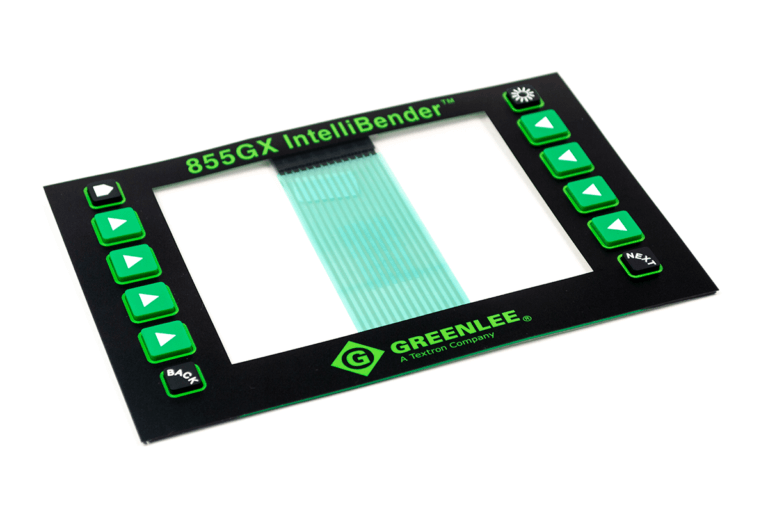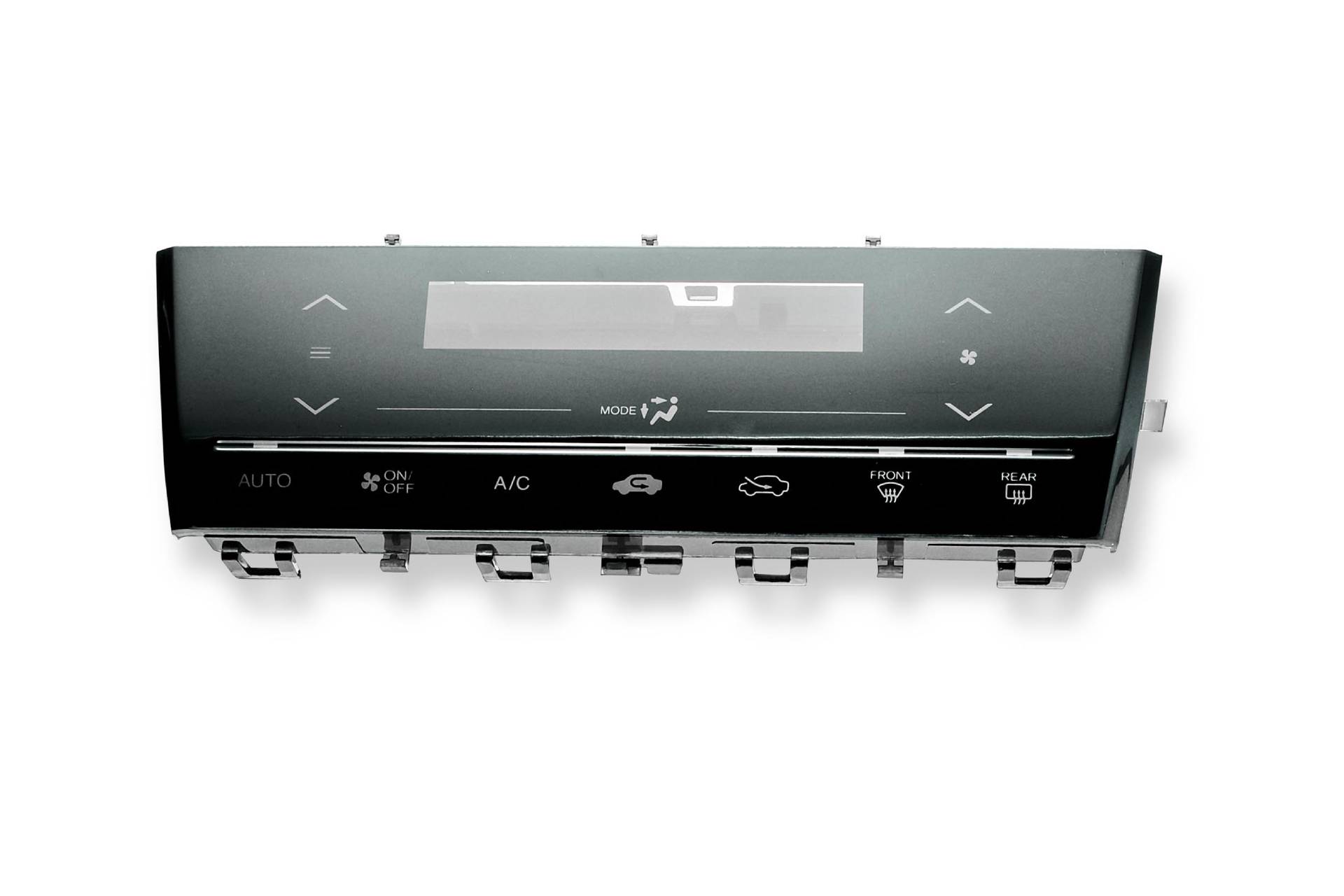Recognizing the Various Kinds of Rubber Keypads and Their Important Makes Use Of in Everyday Innovation
Rubber keypads play an important function in modern technology, functioning as user interfaces for countless gadgets. Different kinds, such as silicone rubber and membrane layer keypads, satisfy certain applications and user needs. Each type offers unique advantages, from adaptability to space-saving designs. Recognizing these distinctions is crucial for choosing the best keypad for a provided application. This exploration will expose not just the types readily available however also their impact across different sectors.
Introduction of Rubber Keypads
Rubber keypads are versatile input devices extensively utilized in various digital applications. Their building and construction usually involves silicone or rubber materials, which provide an unique responsive action when pressed. This responsive comments enhances individual experience by enabling people to recognize essential activation without requiring to take a look at the gadget. Rubber keypads are frequently utilized in customer electronic devices, medical tools, and commercial equipment, providing resilience and resistance to ecological factors such as dampness and dirt. In addition, they can be tailored regarding shade, form, and dimension to fulfill specific layout needs. The flexibility of rubber keypads enables incorporation right into complicated layouts, making them suitable for portable gadgets where space is a restriction. Their cost-effectiveness and simplicity of manufacturing contribute to their extensive fostering throughout various sectors. In general, rubber keypads play a vital function in enhancing use and performance in plenty of technical applications.
Types of Rubber Keypads
Various sorts of rubber keypads satisfy different applications and individual preferences. Amongst the most typical kinds are silicone rubber keypads, known for their adaptability and sturdiness, making them ideal for handheld tools and clinical tools. One more type consists of conductive rubber keypads, which include ingrained conductive materials permitting reliable electric call, commonly found in electronic gizmos. Membrane keypads, a subcategory of rubber keypads, contain layers that create a flat interface, frequently made use of in devices and commercial applications for their space-saving design. Furthermore, personalized rubber keypads can be tailored to specific styles or functionalities, interesting particular niche markets such as video gaming or specialized equipment. Each kind serves distinctive objectives, improving user interaction and device dependability throughout numerous markets. These variations assure that rubber keypads fulfill the diverse demands of consumers, giving capability and comfort in daily innovation.
Key Features of Rubber Keypads
Rubber keypads are recognized for their essential functions that boost usability and performance. Their sturdiness and durability make them excellent for various applications, while responsive feedback features ensure individual complete satisfaction. In addition, the customization choices available permit tailored layouts to satisfy particular needs.
Toughness and Long life
Tactile Action Characteristics
Keypads made with rubber products supply notable tactile feedback characteristics that enhance customer communication. These keypads provide a distinct feedback mechanism, allowing customers to really feel an obvious click or resistance when tricks are pushed. This tactile feedback is essential in applications where precision and accuracy are paramount, such as in medical tools or industrial devices. The gentleness of rubber adds to a comfy pressing experience, lowering finger tiredness throughout prolonged usage. Furthermore, the style usually allows for differing essential heights and forms, better boosting the tactile experience. This responsiveness not just help in protecting against unexpected presses however additionally increases total individual fulfillment, making rubber keypads a preferred selection in numerous technological tools.
Customization Options Available

Benefits of Using Rubber Keypads
Rubber keypads offer many advantages that make them a prominent choice across various applications. One crucial advantage is their sturdiness, as they can stand up to substantial deterioration, making them appropriate for high-usage atmospheres. In addition, rubber keypads give excellent resistance to water, dust, and chemicals, improving their long life and integrity. The soft-touch surface warranties customer convenience, reducing finger exhaustion throughout long term use.
In addition, their responsive feedback improves user experience, enabling exact input recognition. The adaptability in layout likewise allows personalized forms and colors, enabling seamless assimilation right into different items. Furthermore, rubber keypads are commonly cost-effective compared look at this now to other products, making them an affordable alternative for producers. They likewise sustain quiet operation, which is ideal for environments where noise decrease is vital. Overall, the combination of comfort, modification, and longevity makes rubber keypads a useful element in lots of technical tools
Usual Applications in Consumer Electronics
Rubber keypads are extensively utilized in numerous consumer electronics, serving important roles in boosting individual interaction. They are typically discovered in remote control interfaces, medical tool keypads, and home device controls. These applications highlight the versatility and usefulness of rubber keypads in everyday innovation.
Remote Interfaces
Push-button control user interfaces are fundamental elements in modern consumer electronics, allowing individuals to interact easily with gadgets from a distance. These user interfaces make use of rubber keypads to provide tactile feedback, enhancing user experience. Typical applications include tv remotes, video gaming controllers, and wise home tools, where convenience of use is vital. The layout of rubber keypads enables for resistance, flexibility, and longevity to wear, making them suitable for regular use. Different configurations, consisting of single-button and multi-button designs, provide to diverse customer requirements and preferences. In addition, the dustproof and waterproof residential properties of rubber keypads assure trusted capability in numerous environments. On the whole, rubber keypads in remote control interfaces play a crucial role in simplifying interactions with innovation, promoting benefit and accessibility for customers.
Medical Device Keypads
Keypads in medical devices serve an essential function, making it possible for medical care specialists to run equipment successfully and precisely. These rubber keypads are typically located in devices such as high blood pressure screens, sugar meters, and diagnostic devices. Their responsive comments guarantees that customers can input commands without ambiguity, which is crucial in high-stakes environments. Furthermore, the resilience and resistance to moisture and chemicals make rubber keypads suitable for regular usage in medical setups. The ergonomic style commonly suits gloved hands, enhancing usability. Additionally, personalized designs permit makers to customize keypads to certain tool functions, enhancing procedures. On the whole, clinical gadget keypads play a substantial role in enhancing person care with reputable and instinctive user interfaces.
Home Appliance Controls

Home appliance controls play a critical function in the performance and individual experience of day-to-day consumer electronics. Rubber keypads provide tactile feedback and longevity, making them perfect for tools such as microwaves, washing equipments, and coffee makers. These keypads give user-friendly user interfaces, permitting users to easily navigate programs and settings. The soft-touch layout minimizes the risk of unintended activation while making sure a comfortable experience. Additionally, rubber keypads are resistant to wetness and dust, which is necessary in kitchen and laundry atmospheres. They can additionally be customized for specific functions, enhancing usability. On the whole, rubber keypads contribute considerably to the effectiveness and dependability Rubber Keypads of home appliances, ensuring that consumers can run their tools easily and successfully.
Industrial and Medical Use Rubber Keypads
Rubber keypads have become essential parts in various industrial and medical applications because of their sturdiness and reliability. In commercial setups, these keypads are commonly used in machinery controls, providing a responsive interface that holds up against rough settings, consisting of exposure to chemicals and severe temperature levels. Their resistance to use and tear makes them suitable for heavy-use circumstances, where constant performance is crucial.
In the clinical area, rubber keypads offer vital features in tools such as diagnostic devices, individual monitoring systems, and research laboratory instruments. Their convenience of cleaning and ability to resist contamination help in maintaining hygiene criteria considerable to healthcare settings. Additionally, the customizability of rubber keypads enables ergonomic designs tailored to individual demands, enhancing access for both clinical experts and people. On the whole, the adaptability of rubber keypads assurances their proceeded importance in medical and commercial modern technologies.
Variables to Consider When Picking Rubber Keypads
When selecting rubber keypads, numerous vital factors should be thought about to ensure peak performance and compatibility with certain applications. Initially, the designated usage plays a substantial duty; different settings, such as industrial or clinical settings, may need distinct basics attributes like antimicrobial residential or commercial properties or enhanced sturdiness. Second, the tactile feedback is vital for user contentment; a keypad ought to offer a receptive and comfy experience.
On top of that, the style and format need to be taken into consideration, as custom-made sizes and shapes may be essential for specific tools. The product composition influences both the keypad's long life and its resistance to chemicals or severe temperatures. Additionally, compatibility with electronic components is critical; making sure that the keypad incorporates seamlessly with existing technology protects against operational concerns. Cost-effectiveness should be examined, stabilizing high quality and spending plan restraints to attain optimal worth without compromising performance.
Often Asked Inquiries
Can Rubber Keypads Be Custom-made for Details Layouts or Logos?
Rubber keypads can certainly be personalized for specific styles or logos. Producers supply various alternatives, enabling customers to inscribe unique graphics or message, improving branding while keeping performance in diverse applications across numerous sectors.
Just How Do Rubber Keypads Contrast to Membrane Layer Buttons?
Rubber keypads supply responsive comments and durability, while membrane layer buttons supply an even more streamlined layout and are usually thinner. Each has distinct benefits, making the option reliant on particular application demands and user choices.
What Maintenance Is Required for Rubber Keypads?
Rubber keypads call for normal cleaning to stop dust buildup, occasional examination for wear or damage, and proper storage space far from severe temperature levels. Guaranteeing they are devoid of moisture improves their durability and performance.
Exist Environmental Worry About Rubber Keypad Production?
Yes, environmental problems arise from rubber keypad manufacturing, consisting of using non-renewable resources, pollution throughout making processes, and challenges in reusing. These variables contribute to a growing awareness of sustainability in the electronics market.
How Much Time Do Rubber Keypads Generally Last?
Rubber keypads usually last between 5 to ten years, depending upon use and environmental problems. Variables such as exposure to heat, sunshine, and chemicals can substantially influence their toughness and total life expectancy.
Different types, such as silicone rubber and membrane keypads, provide to specific applications and customer requirements. Membrane layer keypads, a subcategory of rubber keypads, are composed of layers that develop a level user interface, commonly utilized in devices and industrial applications for their space-saving layout. Numerous materials are used in keypad production, rubber keypads stand out due to their phenomenal longevity and durability. Keypads designed with rubber materials offer notable responsive action qualities that boost individual interaction. Furthermore, the customizability of rubber keypads allows for ergonomic layouts tailored to user demands, improving ease of access for both clinical specialists and clients.